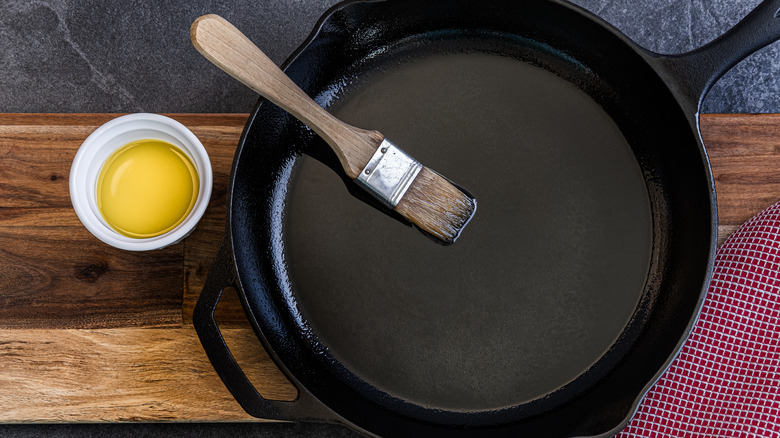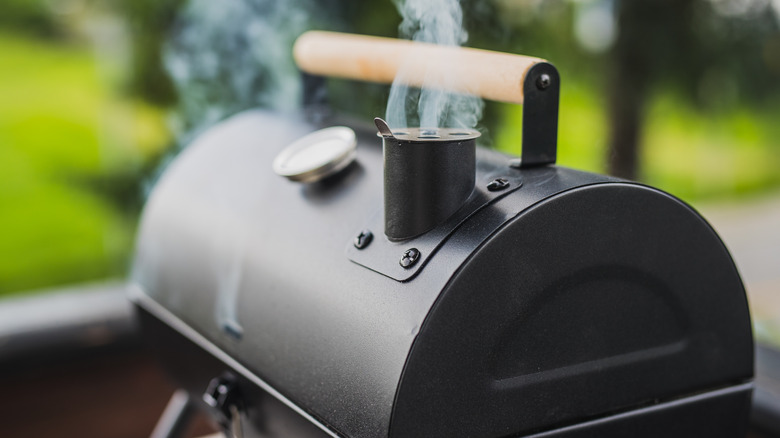Why You Shouldn't Season Your Cast Iron Pan In A Smoker
So, you've purchased your first cast iron skillet. Welcome to the wide world of searing, sautéing, and more with quality cookware. A hurdle appears, however, one you've probably seen coming: you need to season it. It's possible your pan has come pre-seasoned, but there's nothing wrong with wanting to DIY for a more personalized finish. If you've done your research, you know that this task requires high heat and can produce quite a bit of smoke. If you think that sounds like the perfect job for the smoker, think again.
Out of the gate there is a clear reason as to why you shouldn't use a smoker to season a cast iron cooking vessel. Smokers are meant to slowly impart smoky flavor to food while coaxing along the cooking process at low heat, such as with pulled pork or beef brisket. That means that most can't attain the level of heat needed to convert a thin layer of oil into a glossy, nearly-nonstick surface, which is what seasoning's main objective is. High heat that's as even as possible is needed for the oil to properly polymerize, making your oven the perfect piece of equipment to use.
You want the right type of smoke when seasoning
Some people might be fooled by the use of the word seasoning into thinking that the process is meant to impart flavor into the cast iron pan. While cast iron is beloved for its durability and some people claim that cast iron vessels handed down through generations hold the flavor of past meals, this isn't the case. Nevertheless, those who wonder about using a smoker might think that it would impart a signature flavor into the pan and thus the food. But trying to season in a smoker full of wood chips would likely have another effect, one deleterious to the seasoning process: an ashy build-up of black powder that would be rather acrid.
But wait, isn't seasoning smoky anyway? Yes, but that's a far different smokiness than what a smoker creates. Seasoning your cast iron pan requires coating a clean pan in neutral oil and subjecting it to heat well past that oil's smoke point. The oil molecules undergo a change — polymerization — whereby they fuse together to create the seasoned finish. There will certainly be no small amount of smoke — which is why you should open windows and have a vent fan running — but it will come from the pan rather than enveloping it.

